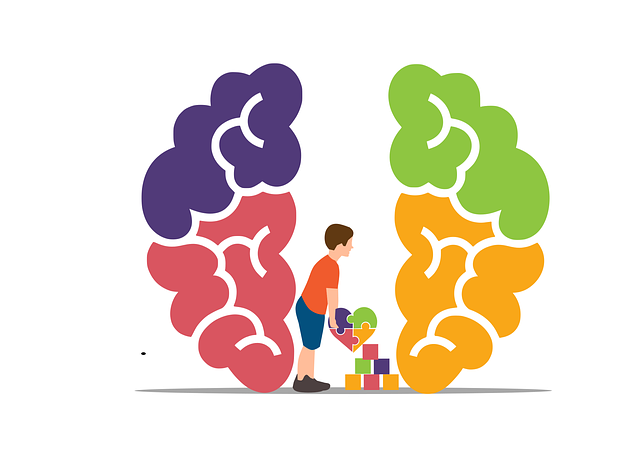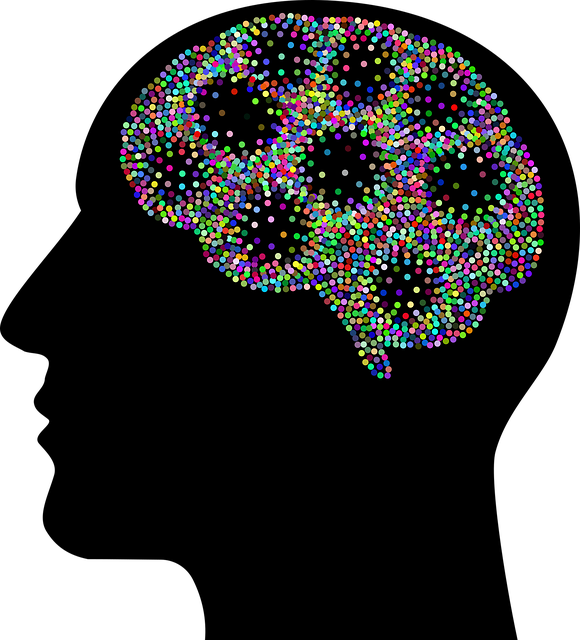Understanding mental health data from various sources like clinical assessments, self-reported surveys, and social media interactions is vital for navigating complex psychology and well-being. Robust preprocessing techniques are essential to ensure data integrity in applications like Lakewood Functional Neurological Disorder Therapy. Advanced statistical methods, including multivariate analysis and machine learning, uncover hidden patterns, guiding evidence-based practices like Burnout Prevention Strategies and Stress Reduction Methods. Therapists can use these insights to tailor treatment plans for improved outcomes. Ethical practices, prioritizing privacy and transparency, are crucial as the field evolves, with future research integrating diverse datasets for comprehensive mental health policy analysis and personalized interventions.
Mental health data analysis is a complex yet crucial field, especially with the growing emphasis on understanding neurological disorders. This article explores the intricacies of analyzing and interpreting mental health data, focusing on techniques that can enhance treatment approaches like Lakewood Functional Neurological Disorder Therapy. We delve into data collection, preprocessing, advanced statistical methods, and ethical considerations, offering insights into the practical applications that drive effective therapy strategies. By understanding these methodologies, researchers and practitioners can navigate complex datasets to improve patient outcomes.
- Understanding Mental Health Data: Collection and Sources
- Preprocessing and Cleaning Techniques for Accurate Analysis
- Advanced Statistical Methods for Mental Health Research
- Interpreting Results: Practical Applications in Lakewood Functional Neurological Disorder Therapy
- Ethical Considerations and Future Directions in Mental Health Data Analysis
Understanding Mental Health Data: Collection and Sources

Understanding Mental Health Data is a pivotal step in navigating the complex landscape of human psychology and well-being. When it comes to evaluating mental health, various sources offer valuable insights, each with its own unique perspective. These include clinical assessments, self-reported surveys, and even social media interactions, all contributing to a rich data set. For instance, individuals seeking Lakewood Functional Neurological Disorder Therapy often provide crucial information through detailed questionnaires and interviews, offering glimpses into their symptoms, daily lives, and coping mechanisms.
Self-Care Routine Development for Better Mental Health is another avenue through which data collection occurs. By encouraging patients to track their activities, thoughts, and emotions, healthcare professionals gain valuable insights into the impact of self-care practices on mental health. This method not only helps in identifying effective strategies but also promotes Empathy Building Strategies and Social Skills Training, fostering a supportive environment for holistic recovery.
Preprocessing and Cleaning Techniques for Accurate Analysis

Accurate mental health data analysis heavily relies on proper preprocessing and cleaning techniques to ensure reliable insights. This initial step is crucial in addressing various challenges, such as missing values, outliers, and inconsistent formatting, which can significantly impact the integrity of findings. For instance, in the context of Lakewood Functional Neurological Disorder Therapy, researchers must meticulously handle patient records, ensuring data consistency and completeness before embarking on analysis.
Effective preprocessing involves data normalization, where variables are scaled and standardized to facilitate meaningful comparisons. Additionally, advanced techniques like imputation methods can address missing data, while outlier detection algorithms help identify and treat extreme values. Integrating these preprocessing strategies into the workflow for Burnout Prevention Strategies for Healthcare Providers or Stress Reduction Methods is vital to enhance the accuracy and validity of mental health research, thereby guiding evidence-based practices in Risk Management Planning for Mental Health Professionals.
Advanced Statistical Methods for Mental Health Research

In the realm of mental health research, advanced statistical methods play a pivotal role in unraveling complex neurological disorders and enhancing treatment strategies like Lakewood Functional Neurological Disorder Therapy. These methodologies enable researchers to delve into intricate data sets, exploring patterns and relationships that might otherwise remain hidden. By employing sophisticated techniques, such as multivariate analysis and machine learning algorithms, scientists can gain profound insights into the etiology and progression of mental health conditions.
For instance, integrating Emotional Intelligence into data analysis can provide valuable context for understanding patient responses to Trauma Support Services. Mental Health Education Programs Design benefits from these advanced methods too, allowing for the creation of evidence-based interventions tailored to specific populations. This nuanced approach promises more effective treatments, personalizing care and improving outcomes in the mental health landscape.
Interpreting Results: Practical Applications in Lakewood Functional Neurological Disorder Therapy

When analyzing data from Lakewood Functional Neurological Disorder Therapy sessions, therapists can gain valuable insights to enhance treatment plans. Interpreting results accurately involves identifying patterns and trends in patient responses to various therapeutic interventions. This process allows therapists to tailor strategies for emotional well-being promotion techniques, ensuring each session is effective and targeted. By closely examining the data, they can pinpoint areas where patients demonstrate significant improvements or identify challenges that require alternative approaches.
For instance, the analysis might reveal a positive correlation between specific exercises focused on emotional regulation and enhanced confidence boosting in certain patient groups. This knowledge enables therapists to design more personalized sessions, leveraging what works best for each individual’s unique needs. Such data-driven insights are transformative, guiding practitioners to navigate complex cases with greater precision and ultimately contributing to improved outcomes in Lakewood Functional Neurological Disorder Therapy.
Ethical Considerations and Future Directions in Mental Health Data Analysis

As mental health data analysis advances, ethical considerations become increasingly vital. With the sensitive nature of personal experiences and struggles, such as those seeking Lakewood Functional Neurological Disorder Therapy, ensuring data privacy and confidentiality is paramount. Researchers must adhere to strict protocols to safeguard individuals’ identities, especially when dealing with potentially identifiable information. Transparency in data collection methods and informed consent processes are key to building trust among participants and the broader community.
Looking ahead, future directions in mental health data analysis should focus on integrating diverse datasets to gain comprehensive insights. This includes exploring the intersection of digital health metrics, social determinants of health, and clinical outcomes. By leveraging these data, researchers can inform evidence-based practices, influence Mental Health Policy Analysis and Advocacy, and develop tailored interventions like effective Stress Reduction Methods. Such advancements hold promise for personalized care and improved mental wellness outcomes.
Mental health data analysis is a complex yet powerful tool that, when mastered, can significantly enhance our understanding of conditions like Lakewood Functional Neurological Disorder (LFND). By employing advanced statistical methods and ethical considerations, researchers can interpret results with precision. This article has explored essential steps from data collection to practical applications in LFND therapy. As we look ahead, continued development in mental health data analysis will not only improve patient outcomes but also contribute to the broader scientific community’s knowledge of neurological disorders.












